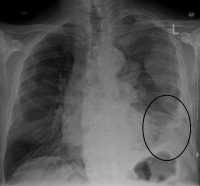AHA Journals, Author Interviews, Obstructive Sleep Apnea, UCSF / 21.06.2021
AHA Scientific Statement Highlights Link Between Obstructive Sleep Apnea and Heart Disease
MedicalResearch.com Interview with:
Yerem Yeghiazarians, MD
Professor of Medicine
Leone-Perkins Family Endowed Chair in Cardiology
San Francisco Board Past-President, American Heart Association
Co-Director, Adult Cardiac Catheterization Laboratory
Director, Peripheral Interventional Cardiology Program
Director, Translational Cardiac Stem Cell Program
Cardiovascular Research Institute
Eli and Edythe Broad Center of Regeneration Medicine and Stem Cell Research
Associate Member in Experimental Therapeutics, UCSF Helen Diller Cancer Center
University of California, San Francisco
MedicalResearch.com: What is the background for this study?
Response: Obstructive sleep apnea is very common, undiagnosed and undertreated. The AHA Scientific Statement was prepared to increase awareness amongst physicians and patients about this condition and to encourage more screening and therapy as appropriate.
Obesity is certainly one of the significant risk factors for sleep apnea and we highlight this in the Scientific Statement:
“The risk of OSA correlates with body mass index, and obesity remains the one major modifiable
risk factor for OSA. In a population-based cohort study of 690 subjects, a 10% weight gain was associated with nearly 32% increase in the apnea-hypopnea index (AHI), and even modest weight control was effective in reducing the new occurrence of sleep-disordered breathing. An even stronger correlation exists between OSA and increased waist circumference and neck size.
Neck sizes predisposing to OSA are usually >17 and 16 in for men and women, respectively.” (more…)






























